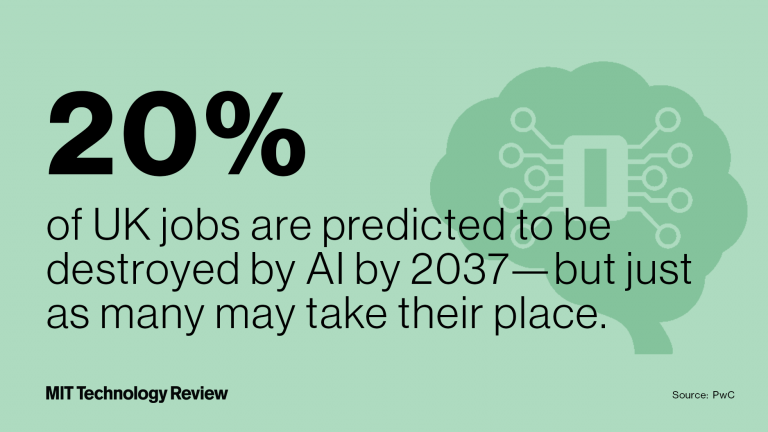The consulting firm PwC anticipates that artificial intelligence will add as many jobs to the UK economy as are lost because of the technology.
The predictions: The paper forecasts that about 20 percent of UK jobs will be automated by 2037—but 20 percent more jobs will also be created. Strictly speaking, the report suggests about 7 million will be lost and 7.2 million gained, but with all the uncertainties in these predictions, that 0.2 million difference is virtually negligible.
What AI taketh away ... PwC hypothesizes that manufacturing sector jobs could be reduced by around 25 percent, a net loss of nearly 700,000 jobs.
... it also giveth back: On the other hand, the health and social work sector will see nearly a million new jobs created thanks to AI.
But… Take results like this with a big grain of salt. Job predictions that look nearly 20 years into the future make a lot of assumptions. As the authors write, “Our central estimate is that the net effect of AI on jobs will be broadly neutral, but there are many uncertain factors that could tip the balance towards more optimistic or pessimistic scenarios.”
The takeaway: Companies, researchers, and consultancy groups disagree like crazy over how many jobs and job functions will succumb to automation. Reports from reputable groups can help predict general trends, but instead of seeking out specific numbers related to technology-induced job loss, we need to figure out how to deal with it.

